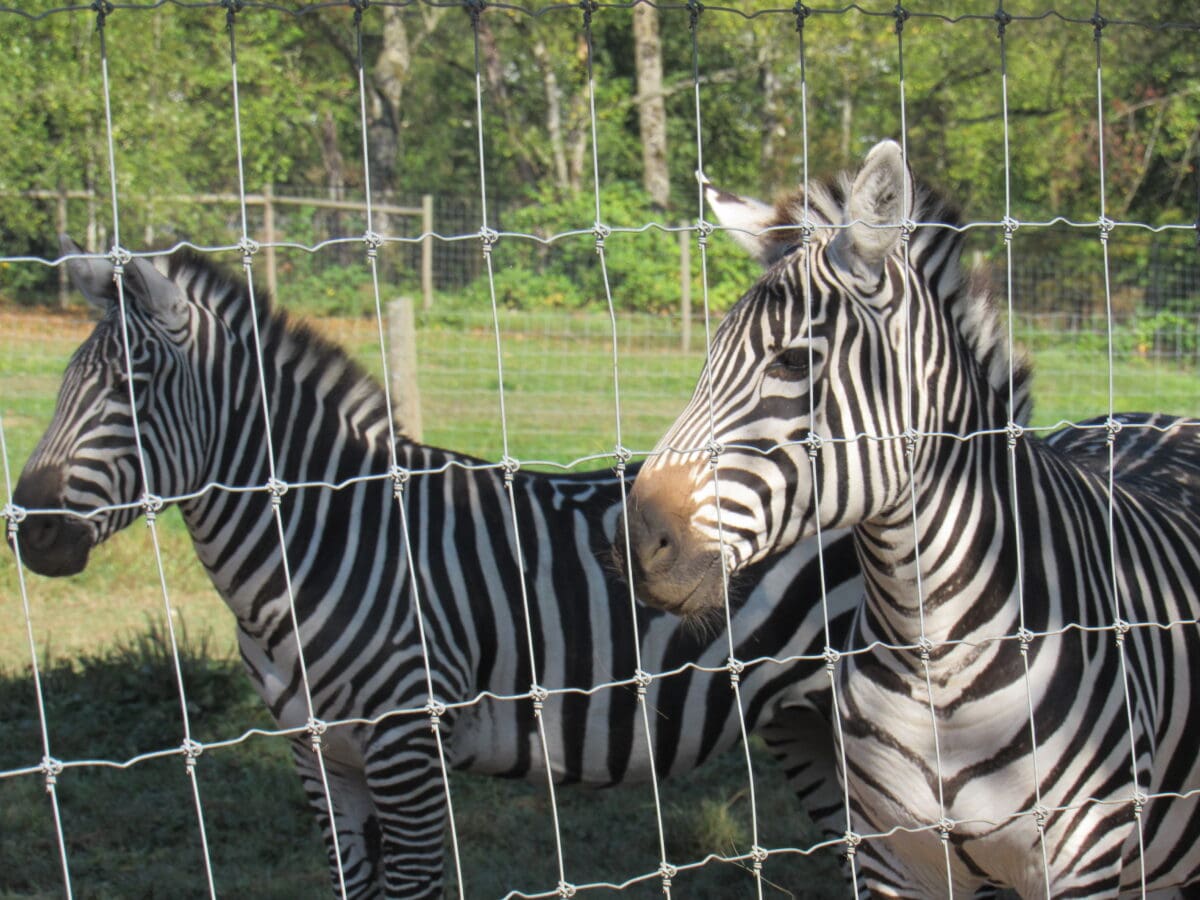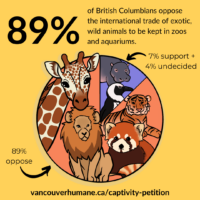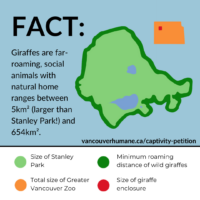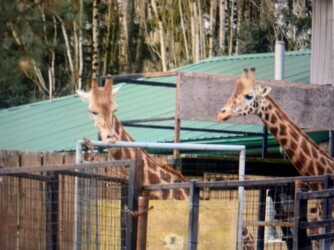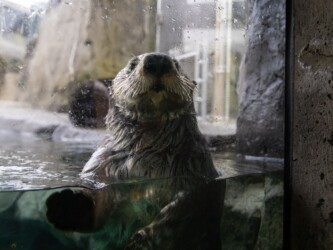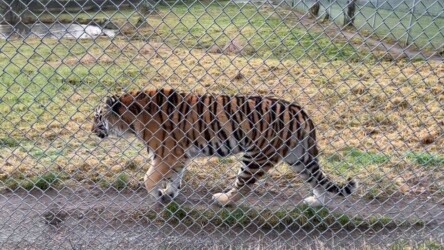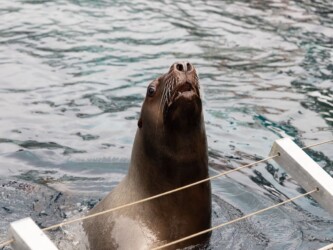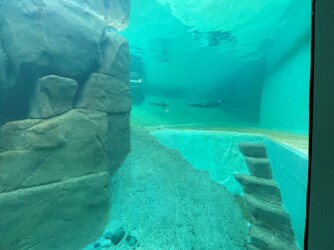Wild, exotic animals suffer in captivity
Zoos and aquariums cannot replicate the size and complexity of a wild animal’s natural habitat. Captive wildlife are also unable to engage in many natural behaviours that are crucial to their physical, social and psychological well-being. Captive exotic animals are often kept in climates that are not suitable for their species.
According to polling,89% of British Columbians oppose the international trade of exotic animals (wild animals not native to B.C.) to be kept on display in permanent captivity in zoos and aquariums.
The VHS has shared an open letter outlining recommendations for updating B.C.’s outdated regulations around wild and exotic animal captivity.
View the full footage.
Learn more about exotic, wild animal captivity and help raise awareness
Scroll through the infographics below to learn more about the issues facing captive wild animals. Click the images to save and share them on social media, or scroll down the page for key messages to share on Twitter.
B.C.’s outdated regulations
There are loopholes in the law when it comes to keeping exotic animals. While B.C. has regulations related to the possession, transportation and breeding of exotic animals (wild animals not native to B.C.), the “Controlled Alien Species” (CAS) regulation prohibits only species that pose the greatest threat to public health and safety and does not consider animal welfare or a species’ suitability for captivity. This leaves out many exotic species, such as kangaroos and zebras, who are not subject to the CAS regulation.
The international trade of animals also increases the risk of disease spread. One in four emerging diseases is zoonotic; many of the most serious illnesses of our lifetimes have originated in animals, including COVID-19.
In B.C., zoos and aquariums, industries using animals for research, and the TV and film industry can get permits to keep dangerous exotic animals through provincial laws regulating the trade of exotic animals. These Controlled Alien Species permits lead to frequent trade of exotic animals and end up resulting in at best, boredom and repetitive behaviours, and at worst, physical suffering and early death.
The province has not significantly updated the CAS regulation since its passing in 2009 and it is overdue for an update.
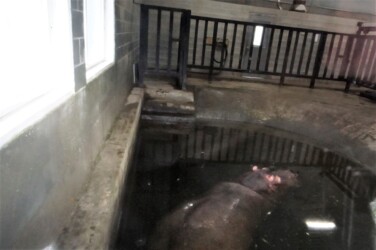
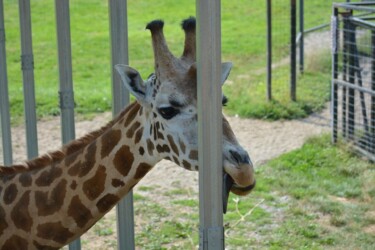
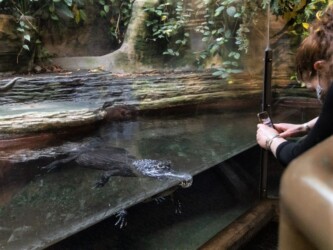

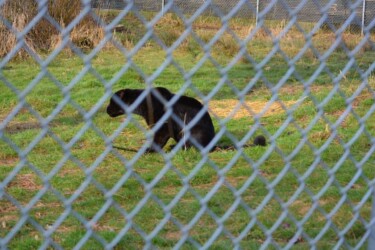
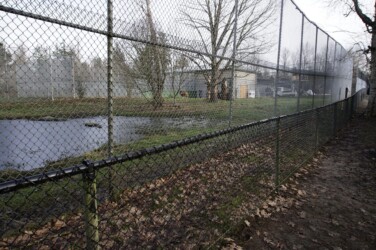
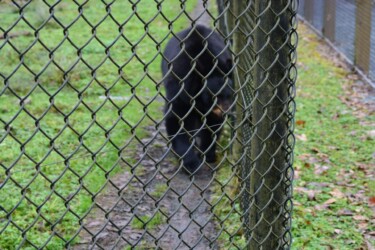
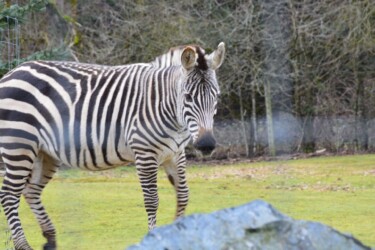
Frequently Asked Questions
If this regulation were to change, what would happen to the exotic animals currently in captivity?
We are suggesting that the Controlled Alien Species regulation be updated to address the bringing of new exotic species into captivity, whether through breeding or transporting animals into B.C. Where animals are already in captivity, facilities and caregivers should focus on doing everything they can to best meet those animals’ needs. This may include moving them to a more appropriate facility, such as a credible sanctuary.
What if native species are injured or orphaned and in need of rescue?
There is valuable work being done by rehabilitation groups across B.C. to help injured and orphaned native wildlife. This includes at the Vancouver Aquarium’s marine mammal rescue centre. This is the direction we think these facilities should move toward – ending the keeping of wild, exotic animals in permanent captivity for public education and entertainment and instead focusing on rescue, rehab and release programs.
How could these facilities remain economically viable?
More and more facilities are moving toward interactive and engaging animal-free exhibits through the use of emerging technology. Given that B.C. is a hub for the growing virtual reality industry, facilities in B.C. are well-positioned to make use of local expertise while continuing to educate the public and support rescue, rehab and release work. Scaling back on the number of animals in captivity will also reduce operating costs to allow for more of a focus on rescue and conservation.
Permits are only issued to CAZA-accredited or equivalent zoos and aquariums; isn’t this an indication they are regulated?
CAZA is a self-regulating industry group without the legal authority to conduct legitimate investigations into cruelty. Furthermore, because CAZA is self-regulating from within the industry, there is effectively no incentive for CAZA to improve the welfare of animals beyond what consumers and the law demand. Our reports and photos from over the course of a number of years demonstrate that accreditation doesn’t necessarily translate into better welfare for captive animals.
Aren’t captive animals used for important research work?
Much of the research done by zoos and aquariums is related to the keeping of animals in captivity, rather than benefiting species in the wild. For research that can translate to meaningful conclusions about wildlife and conservation, there are non-invasive tools and techniques used to research animals in the wild thanks to great leaps in technology over the years.
Isn’t it important for children to see animals up close?
The connections between children and animals is unique and special. Luckily, there are many ways for children to develop empathy for animals without contributing to their suffering in captivity. Here are some great animal-friendly activities that families can enjoy together.
Why is the Vancouver Humane Society addressing this issue?
As an animal protection organization, VHS works on a wide variety of animal issues, ranging from animals in entertainment and captivity, to farmed animals, wildlife, and companion animal veterinary assistance to help people experiencing low-income or other barriers. We aim to end animal suffering in all forms, including the suffering of captive animals who belong in the wild.

